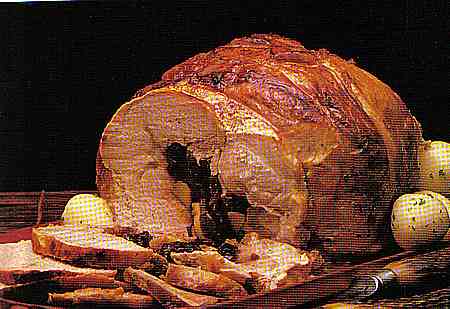sumber: http://foodforbreastcancer.com/foods/pork


Breast cancer risk has been found to increase with increasing consumption of pork in several population studies. In addition, a small Brazilian study found that breast cancer risk was sharply higher for women who regularly consumed lard (rendered pig fat) and fatty red meat. However, a 2009 Swedish population study found no association between fresh red meat intake and overall breast cancer risk, while suggesting that fried red meat intake may increase the risk of estrogen receptor-positive/progesterone receptor-negative ER+/PR- breast cancer.
Red meat intake has been shown reduce circulating melatonin. Melatonin protects against breast cancer in several ways, including by reducing aromatase activity within the breast, thereby reducing estrogen production.
Relatively high levels of heterocyclic aromatic amines (HCAs) have been found in pork dishes such as pork chops and other pan-fried pork, Chinese-style and Western-style roasted pork, pork ribs, and barbecued pork, as well as pork drippings. HCAs have been shown be associated with the development of various cancers, including breast cancer. Two of the HCAs found in pork cooked using high temperature methods, 2-amino-3-methylimidazo[4,5-b]pyridine and 2-amino-1-methyl-6-phenylimidazo[4,5-b]pyridine, have also been shown to have potent estrogenic activity, inducing activation of estrogen-regulated genes, proliferation of estrogen-dependent cells and up-regulation of progesterone receptor.
While iron deficiency anemia is a serious condition to be avoided, the contribution of significant iron in the diet as a result of regularly consuming pork could be detrimental for some women. Pork contains approximately 60 percent of the iron in beef. Iron depletion has been shown to lead to significant inhibition of breast cancer cell growth in the laboratory. Relatively high levels of iron in benign breast tissue was found in one prospective study to be associated with an increase in risk of subsequent breast cancer. Other studies have found high levels of iron in the blood to be associated with increased breast cancer risk. High intake of saturated fat from animal sources including pork has also been found to be associated with increased risk of breast cancer.
Bottom line
Based on the available evidence, pork prepared using high temperature methods (roasting, barbecuing, deep frying), pork drippings (and gravy made with pork drippings), charred pork, pork fat, and lard all should be avoided by breast cancer patients, survivors and those at high risk for breast cancer. In addition, consumption of lean pork dishes prepared using lower temperature methods should be limited.




No comments:
Post a Comment